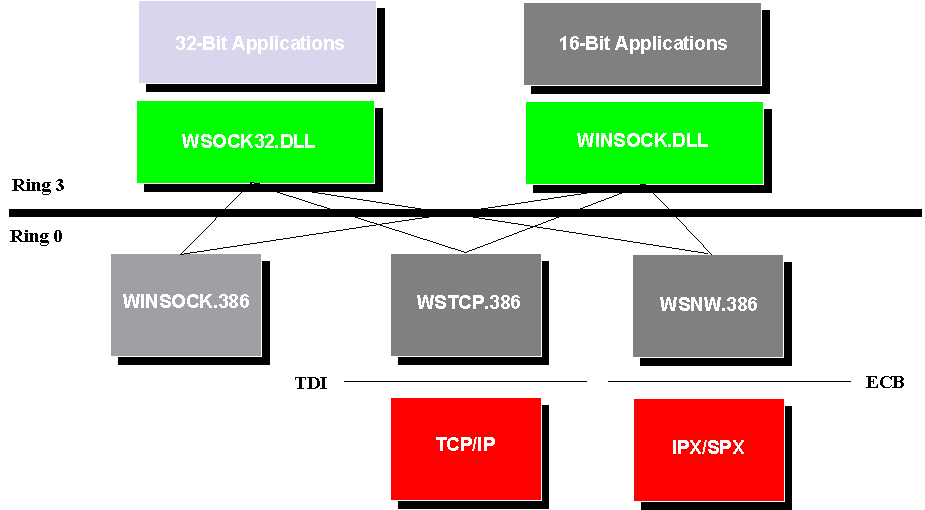
Note The information in this section pertains to the next major release of Windows, code-named Chicago. All of the information in this section is preliminary and subject to change.
Chicago also supports multiple transports under Windows Sockets, using the same names, WSOCK.DLL and WINSOCK.DLL, for the system DLLs so that application binary compatibility is preserved. However, internally the architecture of Windows Sockets in Chicago is significantly different than Windows NT's architecture.

Windows Sockets architecture of Chicago
One of the key differences between the Chicago and Windows NT Windows Sockets architectures is that there is no thunking involved for 16-bit applications. The Windows Sockets DLL is cross-compiled into two different files, WSOCK32.DLL and WINSOCK.DLL. Each of these speaks directly to the underlying VxDs (virtual device drivers) which provide Windows Sockets support, thereby eliminating an extra layer for 16-bit applications.
Next, Chicago has multiple kernel-mode transport interfaces, including both TDI and the ECB (event control block) interface. Therefore, the drivers which translate between Windows Sockets calls and the transport drivers are different for each transport. The WINSOCK.386 VxD points the user-mode DLLs at the appropriate kernel driver, then the DLLs access WSTCP.386 or WSNW.386, which in turn speak to their transports over each transport's interface.